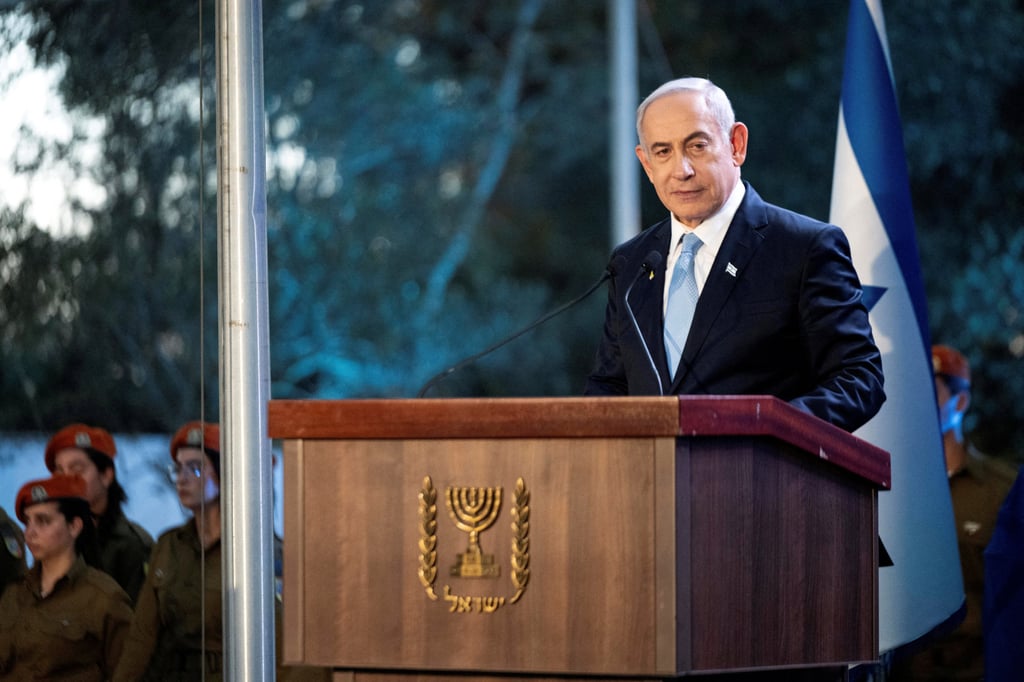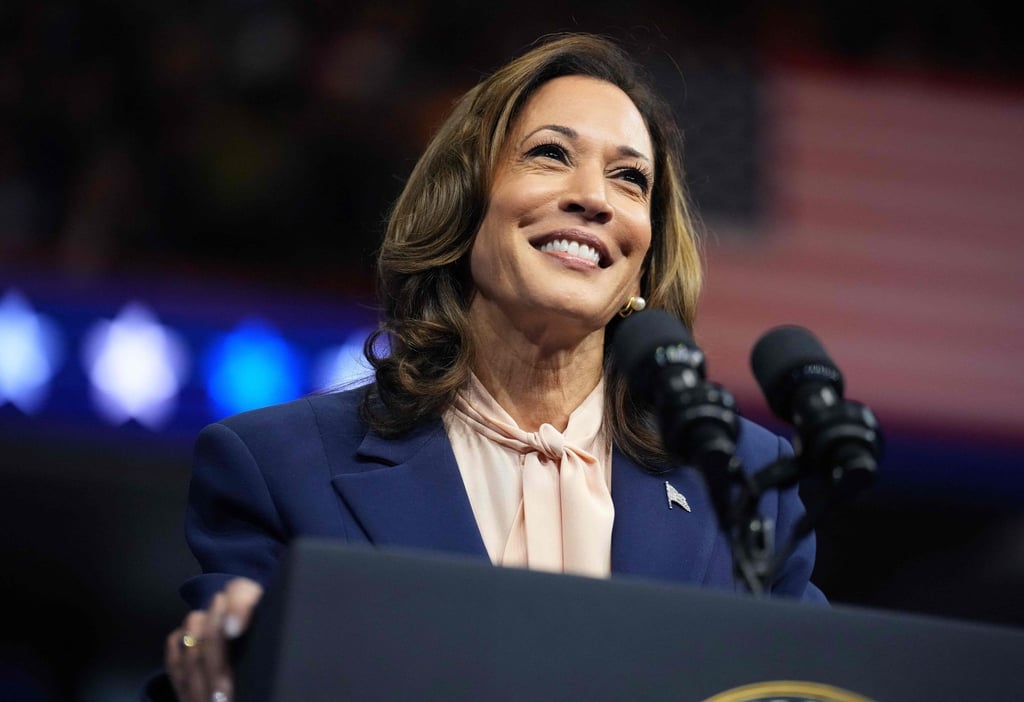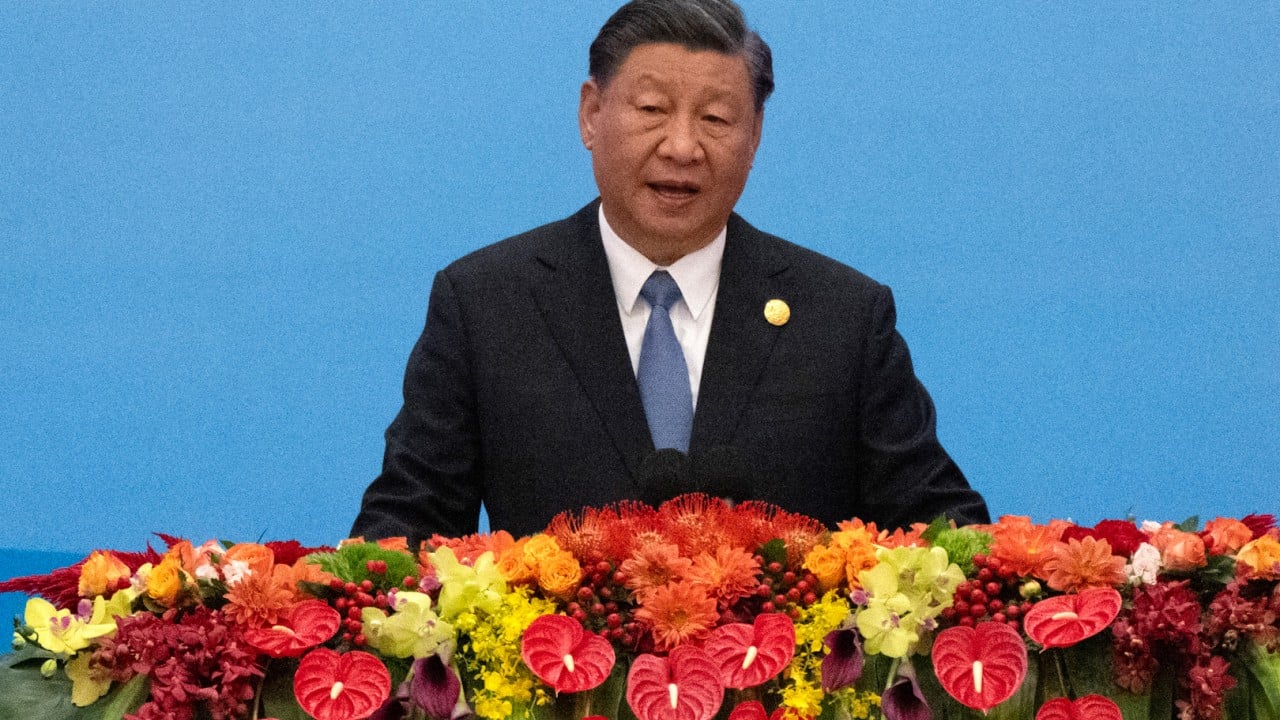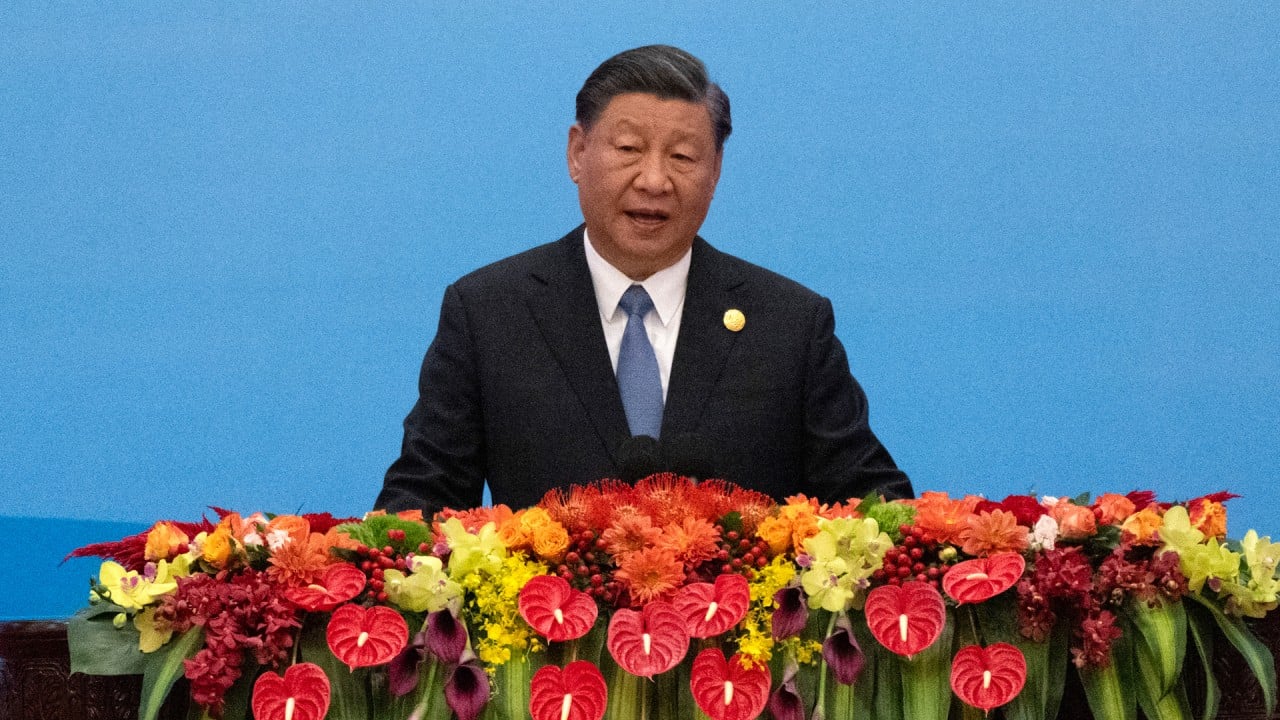Hezbollah will definitely retaliate and continue to launch missiles and rockets at Israel. Hamas will definitely take some action too, but Hamas really does not have the strength to fight any more. Although its leader has been killed, it is unable to make any major moves.
Under the current circumstances, Israel may also not want to fight on two fronts – attacking Gaza and Lebanon at the same time. This is very difficult, but it is also prepared [for any attack].
The US presidential election will start soon, and both candidates have told [Israeli Prime Minister Benjamin] Netanyahu that they want the war to be stopped as soon as possible.
So … I think if Israel expands the war, it will be opposed by all sides.
Although Iran has very tough rhetoric, how is it able to [retaliate] when it is so far away? Iran will probably just release a muddled investigation result on [the killing of Hamas leader Ismail Haniyeh] because it has no solid evidence that Israel must be behind it, so it is difficult for Iran to take any action.
Israel may take very drastic measures in response to the attack on the Golan Heights. It can say [its retaliation] is for the Druze – the [town] attacked is predominantly Druze. The Druze is an Arab branch and there are many Druze in the Israeli army. So a conflict between Lebanon and Israel on the Golan Heights is inevitable.

How will these conflicts affect progress on a ceasefire between Israel and Hamas under the US-backed proposal?
I think Israel is the key in the Gaza war. It has not taken resolute measures in terms of [a ceasefire] due to some internal reasons, and it will be even more difficult now with the situation in Lebanon.
The biggest pressure Israel faces is from diplomacy. One country after another has cut ties with it and recognised Palestine. This is a diplomatic dilemma that Israel has never encountered before – if this war continues, Israel will be quite isolated, politically and diplomatically.
The internal conflicts in Israel [have also] become more intense. The Israeli people are demanding a ceasefire, especially the families of the detained hostages. In fact, most Israelis support a ceasefire except for a few extremists.
Netanyahu is under great pressure now. I think he also has a selfish motive – there will be elections and a trial for him after the war stops. So he thinks that if the war continues he can still be prime minister, but if it stops he will have a lot of troubles.
It will definitely take some time to reach a ceasefire. It depends on the situation of the US presidential election, the development of domestic politics in Israel, and any new movements in Lebanon. I don’t think an agreement can be reached in one or two days, but I don’t think the war will last long – both sides can’t fight for long.
Hamas certainly hopes to have a ceasefire as soon as possible. After this war, Hamas’ status among Arabs has greatly declined, and many people blame Hamas as the cause of the conflict.
The US also hopes for a ceasefire, whether it is [Vice-President] Kamala Harris, [President Joe] Biden or [former president Donald] Trump. Now that Harris has become a presidential candidate the pressure on Israel will be even greater, and there will also be more possibility for China and the US to cooperate on the two-state solution in this regard.

How do you view China’s role in conflict mediation in the Middle East?
China’s current attitude towards Israel and Palestine is basically a two-state solution. But this fundamental solution to the issues of Palestine, Israel and the Jews has not been achieved even by the United Nations for so many years. China can participate in [the peace process] but it may not be able to take the lead.
In terms of promoting peace and negotiations in the Middle East, we have been relatively successful on [the rapprochement between] Iran and Saudi Arabia … China can play a role in many issues in the Middle East – for example … we can also play a role on the two factions in Yemen.
China recently hosted rival Palestinian factions for peace talks and they signed the Beijing Declaration on ending their division. How will the recent attacks in Iran and Lebanon affect the reconciliation process?
The recent attacks are a blow to the Beijing Declaration. But to be honest, it remains to be seen how practical a result the declaration will achieve. The Palestinian factions often have conflicts again after they finish [peace] talks. I am not optimistic about whether Fatah can take the lead well and unite the factions, but I think it is a good start.
It is very difficult to promote peace and negotiations and it will take a long time. It is not an easy task but it is good that China has started the process.
Since Hamas’ attack against Israel on October 7, Israeli observers have criticised China as “biased” towards the Palestinians. How would you evaluate China’s relations with Israel at present?
We recently heard that the relationship between China and Israel has not been fundamentally affected and [Beijing’s] policy on bilateral ties has not changed.
Most Jews still believe that China’s attitude is objective and fair. Some criticise China, but they even criticise the US which they say is not supporting them enough.
Israel is very dissatisfied about [China’s support] for the two-state solution, but we are basically treating both sides equally and hope that both sides will sit down for talks and establish two countries.
Inviting Hamas and Fatah to Beijing does not mean that we recognise Hamas. We only recognise the Palestinian National Authority, headed by [Mahmoud] Abbas. Our [diplomatic] ties with them started from the 1960s.
It was fought by many, for a long time, to recognise Israel back then. There were a lot of disputes in China but it was [former leader] Deng Xiaoping who made up his mind to recognise Israel so that China and Israel could establish diplomatic relations.
Our main cooperation with Israel now is on the Belt and Road Initiative. The Haifa Port in Israel was built by [a company from] Shanghai … In addition, we have also built a light rail in Tel Aviv, and there are many other projects. Netanyahu hopes to build a high-speed railway from Haifa in the north to Eilat in the south.
The innovative cooperation between China and Israel also continues. There is an Israeli innovation base in Shanghai. We were very worried there would be demonstrations going to this base, the Israeli consulate general, and the Jewish community in the northernmost part of Shanghai’s Pudong New Area. There are many international students from Arab and Islamic countries in Shanghai, which also has the largest number of Jews [in China].
Fortunately there have been no other incidents after the stabbing of a family member of an Israeli diplomat [in Beijing].
What has been the impact on China following the Red Sea crisis?
After the Red Sea crisis, for example, the Haifa Port in Israel suddenly lost business. The entire Belt and Road Initiative has also been hit hard.
One of the main routes of the Belt and Road Initiative goes through the Red Sea and the Suez Canal to the Haifa Port in Israel, then to the Piraeus Port in Greece, Malta, and then to Italy. The Houthi armed forces have now disrupted the whole route. Cargo ships have to be diverted to the Cape of Good Hope in South Africa. The price of our containers has also doubled. But there are no other ways for many of our factories, or they switch to the China-Europe Railway Express, which has now become very popular.
Will China exert influence on Iran to prevent further conflicts in the Middle East? Do you think China and Iran can coordinate on the Palestine-Israel issue?
[China] can’t play much role on Iran. It’s impossible to expect Iran to play a role in the Palestine-Israel issue. It firmly supports Palestine and even supports Hamas, and believes that the establishment of Israel was a mistake. But Iran does not want to have a direct conflict with Israel.
In the past few years there has been talk of whether China is trying to overtake the US in the region. What’s your take on this? Will Beijing’s regional policy and rivalry with the US change after the Israel-Gaza war?
Since the Arab spring in 2011, China’s policy [in the Middle East] has actually been greatly adjusted. One adjustment is to further strengthen economic cooperation, and after the Belt and Road Initiative was proposed it became a dominant policy of China’s in the Middle East.
We first signed the belt and road cooperation agreement with all Arab countries, and also with Israel, Iran and Turkey.
China’s economic cooperation [with them] developed very rapidly after this. It used to be mainly on trade and oil … but now China is increasingly involved in building infrastructure. The construction of buildings, bridges, roads and a capital … is in full swing.
The second point is that China is now paying more attention to playing a political and security role in the Middle East. A very important reason here is to protect the safety of our overseas citizens. We evacuated more than 36,000 people during the Libyan conflict.
We increasingly realised that it is not enough to passively protect overseas Chinese – we must actively participate. We took part in the United Nations’ anti-piracy campaign and sent three warships … to protect ships from China and all over the world. Then after a while … we established a supply base [in Djibouti]. The West was very unsettled at first, but what’s to be nervous about? The US, France and Japan all have bases there, so why can’t China have one? Now they are used to it.
So I think China’s current policy is not only about economic cooperation and the Belt and Road Initiative, but also counterterrorism, anti-piracy and peacekeeping.
In this regard, I think China is very different from 10 years ago. It has warships, soldiers and peacekeeping forces. China has 1,000 peacekeepers in southern Lebanon. They are mainly engineers and medical troops, but they play a big role which demonstrates China’s real involvement in security and anti-terrorism cooperation [in the region].
Of course, we can also try our best to participate in conflict mediation.
My point of view is clear: if China and the United States want to cooperate, the Middle East is the best place. China and the US cannot cooperate in the Pacific, the East China Sea or the South China Sea. But they can in the Middle East because China and the US’ basic policy in the region is the same – that is, Palestine and Israel as two states, counterterrorism and anti-piracy.
China and the US do not have direct conflicts of interest in the Middle East, in Saudi Arabia or Iran. There has been no major change in the views of China and the US on the Middle East after October 7.
How can China and Saudi Arabia cooperate on the Palestinian issue to promote the two-state solution? And what are the prospects for Saudi Arabia and Israel normalising ties?
The US is now desperately promoting the normalisation of relations between Saudi Arabia and Israel. An important reason why Hamas attacked on October 7 was that it wanted to ruin the agreement that Saudi Arabia and the US were about to reach. However, it was not completely ruined – Saudi Arabia still wants to normalise relations with Israel.
Saudi Arabia and China now share basically the same views. They both support the two-state solution. Arab countries also want to normalise relations with Israel, and after that they will have large-scale economic cooperation, in which China can also play a role.
So there is really no conflict between Saudi Arabia and China now. It also strongly supports China on the Xinjiang issue.
You are also an expert on the SCO and Brics, which is seen as having “strategic significance” in geopolitics – including whether it aims to challenge the G7. What’s your view on this? And how would you interpret China’s policy on the Global South?
None of these organisations really want to challenge the US. Even if Russia may have this idea, how are you able to do that when there are so many countries in the SCO, which also includes India? The Brics countries will not challenge the US either.
China mainly considers the economic aspect [of these groupings] and will not be as eager to compete with the West as Russia. It is not that easy. There are also European countries in the West, and the policies of Europe and the United States are already different.
The Global South is just a slogan. How can it be so easy to unite? What is the Global South? I think this term is too general and there are all different kinds of countries in it. It’s too complicated.
It is also difficult to cooperate in a specific way because India is part of it. If it does not agree on something, you will not be able to do it. India opposes the Belt and Road Initiative. Therefore, the SCO always adds a sentence in its final declaration: X countries instead of the SCO support China’s Belt and Road Initiative, just because the China-Pakistan Economic Corridor in the plan passes the so-called territory of India.
The Belt and Road Initiative is now in its second decade. How can China balance its economic and political benefits with the controversies over debt and project security?
The biggest problem with the Belt and Road Initiative now is how to pay off our investments. It is not just Pakistan; you don’t even know how much we’ve invested in Africa. If we look at this from the perspective of making or losing money, the Belt and Road Initiative is definitely not profitable, but from the perspective of building a community with a shared future for mankind, this is something we have to do.
For example, PetroChina has suffered heavy losses in Sudan, which is in such a deep conflict. In Pakistan and Afghanistan, we have lost a lot of people [due to terror attacks] … we have to consider the pros and cons.
So how can China better respond to terrorist activities targeting Chinese assets in Pakistan and Afghanistan?
It actually depends on the local government in terms of counterterrorism. I believe they do their best, but sometimes even going all out is not enough as their ethnic and religious conflicts are very deep. For example, the terrorist actions in Pakistan are not related to the Afghan Taliban but the Pakistani Taliban. These two organisations are different. In addition, there is also the Balochistan Liberation Army, which is particularly complicated.
On Afghanistan, some say that whether China will recognise the Taliban government depends on counterterrorism progress – do you agree? Can China and the US continue to cooperate on Afghanistan?
China was the first country to send an ambassador [to Kabul after the Taliban takeover in 2021]. Restoring the embassy is mainly to protect Chinese citizens in Afghanistan, and to issue visas to Afghans who want to do business or visit China. But a Chinese ambassador going there does not mean formal recognition. We don’t want to be the first country in the world to recognise it.
The main issues that remain to be seen: one is counterterrorism, and the other is their attitude towards women, which is very important. So we proposed that more needs to be done in order to improve ties.
What we are doing now is to promote economic and trade cooperation [with Afghanistan] – we import a large number of Afghan carpets and pine nuts every year. [Another] thing is to [provide] humanitarian assistance.
China and the US have maintained communication on Afghanistan. Since the US withdrew from Afghanistan, there has been no clear cooperation but the position of both on counterterrorism is consistent.


